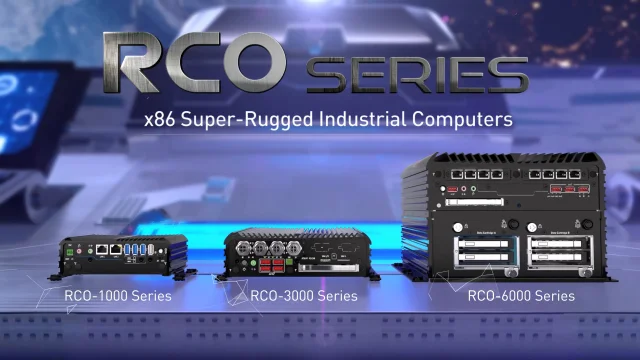The adoption of digital transformation in manufacturing, often referred to as Manufacturing 4.0, is becoming increasingly essential as edge AI and Industry 4.0 technologies demonstrate significant success. Rugged edge computers serve as critical enablers of these advancements by:
- Enabling real-time processing capabilities
- Streamlining complex AI workloads
- Consolidating various IoT sensors and devices
- Ensuring extreme durability in harsh factory conditions
Before Digital Transformation
After Integrating Industry 4.0 Technologies
Digital Transformation Challenges & Solutions
There are four critical challenges that organizations typically face before adopting digital transformation in manufacturing. Rugged edge computers provide the necessary capabilities to enable next-generation technologies that alleviate these manufacturing bottlenecks.

Buying Guide
Selecting The Right Rugged Edge Computers for Digital Transformation In Manufacturing
Download your comprehensive guide to revolutionizing your manufacturing operations with the right rugged edge computing solution. This resource will help navigate our edge portfolio to find the exact hardware match for your smart manufacturing needs.
- Modern manufacturing challenges
- Smart manufacturing solutions and technologies
- Optimized rugged edge expert hardware recommendations
Real-World Digital Transformation Case Studies
From production inefficiencies to quality control bottlenecks, these organizations integrated rugged edge computing solutions to successfully enable their deployment applications. Explore how these forward-thinking organizations adopted Industry 4.0 manufacturing technologies to address major pain points and optimize their productivity.
FAQ
Digital transformation in manufacturing is the integration of advanced edge AI and industry 4.0 technologies to optimize production processes, enable real-time monitoring, and develop smart factories. The adoption of this digital transformation helps manufacturers alleviate critical bottleneck pain points, improve efficiency, and deliver data-driven insights for actionable decision-making.
Rugged industrial computers are specifically engineered for harsh manufacturing deployments, featuring specialized durability against vibration, shock, and extreme temperatures. Unlike traditional desktops and commercial workstations, industrial computers offer utmost reliability, leveraging industrial-grade components, and provide IoT-centric connectivity options for factory automation. Learn more >>
There are a few key factors to consider when selecting the right industrial computer for adopting digital transformation in manufacturing: rugged requirements in factory floor deployment, performance requirements to power the application, connectivity necessities to connect various IoT devices, sizing and mounting to retrofit into specific locations, and more. Read buying guide >>
Essential manufacturing digital transformation includes integrating edge AI and Industry 4.0 technologies such as advanced robotics, machine vision, AI-powered surveillance, and data-driven control centers.
Digital transformation improves quality control in manufacturing by utilizing AI-powered machine vision systems. T This cutting-edge technology leverages a specialized large language model (LLM) that enables AI-driven on-premises defect detection in real-time. This system is enabled by utilizing high-speed vision cameras and an industrial GPU computer.
Common challenges and pain points that manufacturers face before adopting digital transformation include: Inefficient production processes, overwhelmed workforce, bottlenecks in production and material handling, and lack of production data visibility
Private 5G networks enable low-latency, ultra-reliable wireless communications to support digital transformation in manufacturing. With a private network, manufacturers can optimize various features to seamlessly meet their networking requirements. Learn more >>



















